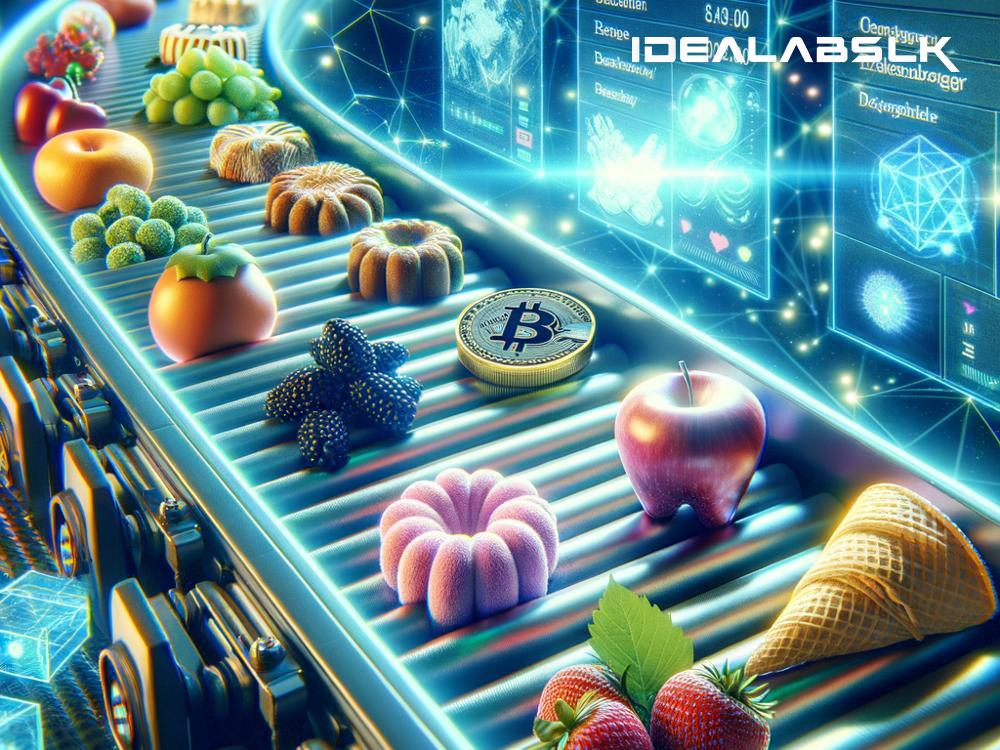Unpacking the Future: Blockchain in the Specialty Food Supply Chain
In today's fast-paced world, everyone loves indulging in exotic or specialty foods now and then. From artisanal cheeses to single-origin coffee, these delights fuel not just our bodies but our souls. However, have you ever paused to wonder where your favorite specialty food comes from or how it maintains its premium quality by the time it reaches you? This is where the magic of blockchain technology comes into the picture, especially within the realms of the supply chain for these delectable treats.
Understanding the Basics
Before we dive into how blockchain technology is revolutionizing the supply chain of specialty foods, let's break down the basics. Imagine blockchain as a digital ledger or a record book that's open for everyone to see. Each transaction or exchange in the ledger is a "block," and these blocks are linked together in a "chain" in the order they occur. What's special about this digital ledger is that it's decentralized, meaning it doesn't rely on a single central point of control. Instead, it's distributed across a network of computers, making it highly transparent and secure.
The Crux of the Matter in Specialty Foods
When it comes to specialty foods, there's a heightened emphasis on quality, origin, sustainability, and ethical practices. Consumers today are more informed and conscious about their food choices. They seek clarity on whether their coffee beans are ethically sourced from Guatemala or if their artisanal cheese comes from a farm that practices sustainable agriculture. This is where blockchain steps in to bridge the gap between trust and transparency.
The Role of Blockchain in Specialty Food Supply Chains
1. Traceability
One of the standout features of blockchain is its ability to trace the journey of a product from its origin to the consumer's hands. Each step of the journey is recorded in the blockchain, be it the farm where the coffee beans were picked, the processing unit where they were roasted, or the logistics involved in getting them across the globe. This traceability empowers consumers with knowledge about the genuineness and quality of the product they're consuming.
2. Reducing Counterfeit
The specialty foods market is often plagued by counterfeit products that tarnish the reputation of genuine producers and deceive consumers. Blockchain's transparent and immutable ledger ensures that the authenticity of products can be verified at any stage, drastically reducing the chances of counterfeit products entering the market.
3. Efficiency and Cost Reduction
Supply chains can be complex, with numerous intermediaries involved, leading to inefficiencies and increased costs. Blockchain introduces automation and real-time tracking, streamlining operations and reducing the need for intermediaries. This not only accelerates the process but can also significantly cut down costs, which is a boon for both producers and consumers of specialty foods.
Real-World Applications and Success Stories
Several pioneering companies and consortia are harnessing the power of blockchain to enhance the supply chain of specialty foods. For instance, IBM's Food Trust network is a blockchain-based system that connects growers, processors, wholesalers, distributors, manufacturers, retailers, and others in the food industry, offering enhanced traceability, accountability, and efficiency. Similarly, projects like Provenance and Fair Food are leveraging blockchain to ensure food ethics and sustainability, providing consumers with a clear view of the production and journey of their food.
Challenges and the Road Ahead
While the integration of blockchain into the specialty food supply chain heralds a new era of transparency and trust, there are challenges to be addressed. These include the technological learning curve, the initial setup costs, and the need for widespread adoption across the supply chain for it to be truly effective.
Despite these hurdles, the trajectory towards a blockchain-powered supply chain in the specialty food industry looks promising. As more players recognize the value and benefits of blockchain, we can expect a future where every bite of specialty food comes with a story of trust, quality, and sustainability that's verifiable at the touch of a button.
Conclusion
In a world increasingly driven by the demand for transparency and sustainability, blockchain technology offers a glimmer of hope in bringing about meaningful change. For the specialty foods industry, it promises not just a way to combat issues of counterfeit and traceability but also paves the way for conscious consumerism underpinned by trust and ethics. As we stand on the cusp of this technological revolution in the food supply chain, it's clear that the way we view, choose, and enjoy our food is poised for a monumental shift.

